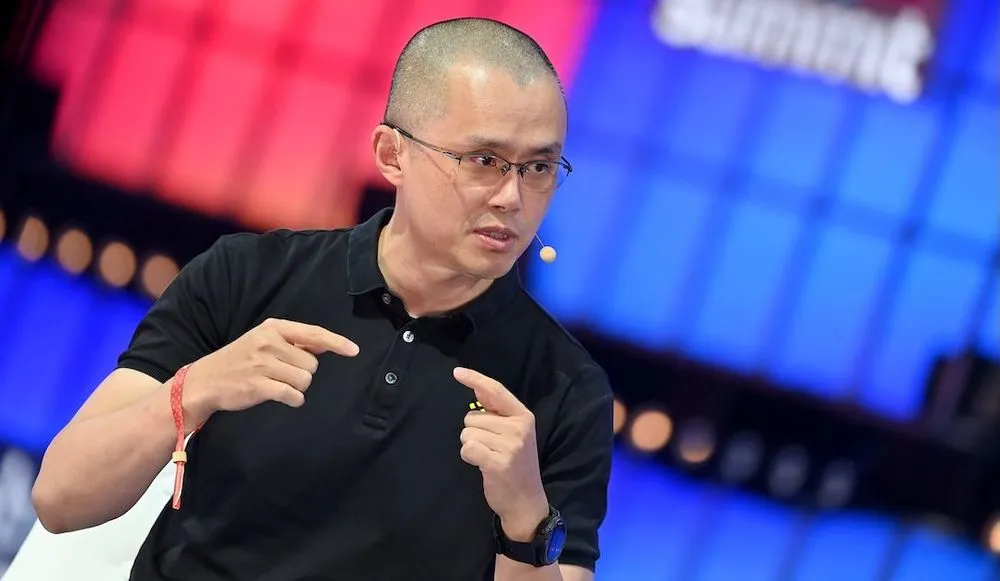Trump pardons former Binance CEO after guilty plea in letting cybercrime proceeds flow through platform
The Biden administration made former Binance CEO Changpeng Zhao a symbol of the war on cybercrime. On Thursday, President Donald Trump claimed him as a victim of the "war on cryptocurrency."
The Wall Street Journal first reported that Trump was pardoning Zhao, who had pleaded guilty to several criminal charges in 2023 related to his role in Binance’s failure to report cryptocurrency circulating on the platform that had come from ransomware attacks, large-scale hacks, account takeovers, and darknet markets dealing in illegal narcotics, counterfeit and fraud-related goods and services, and other contraband.
White House spokesperson Karoline Leavitt confirmed the pardon in a statement to Recorded Future News.
“President Trump exercised his constitutional authority by issuing a pardon for Mr. Zhao, who was prosecuted by the Biden Administration in their war on cryptocurrency. In their desire to punish the cryptocurrency industry, the Biden Administration pursued Mr. Zhao despite no allegations of fraud or identifiable victims,” Leavitt said.
A Binance spokesperson called the pardon “incredible news” and thanked Trump “for his leadership and for his commitment to make the U.S. the crypto capital of the world.”
According to The New York Times, Binance has invested in cryptocurrency projects run by Trump’s sons, and Zhao allegedly hired lobbyists tied to the president in advance of the pardon.
Leavitt said the previous president’s “war on crypto is over.” The three-year sentence was “so outside Sentencing Guidelines that even the Judge said he had never heard of this in his 30-year career, Leavitt said. “These actions by the Biden Administration severely damaged the United States’ reputation as a global leader in technology and innovation.”
Binance paid more than $4 billion in penalties as part of a settlement with the Justice Department and Treasury Department, one of the largest corporate penalties in U.S. history. As part of the settlement, Zhao resigned as CEO and served about four months in prison.
At the time, Attorney General Merrick Garland and Treasury Secretary Janet Yellen told reporters that Binance knew and actively sought out business from sanctioned countries, terrorist groups and online marketplaces used by cybercriminals.
“Despite being one of the largest receivers of ransomware proceeds, and transacting in millions of dollars of ransomware proceeds from attacks involving at least 24 different strains of ransomware, Binance failed to report these transactions,” the Treasury Department said.
Binance is one of the largest cryptocurrency exchanges in the world, but years of law enforcement investigations uncovered widespread criminal use of the platform.
The Treasury Department said the platform was used by groups like Hamas’ Al-Qassam Brigades, Palestinian Islamic Jihad (PIJ), Al Qaeda, and the Islamic State of Iraq and Syria (ISIS) — as well as ransomware attackers, money launderers and other criminals.
It facilitated trades between U.S. users and people in sanctioned countries like Iran, North Korea and Syria, as well as the Russian-occupied Crimea region of Ukraine.
“Between August 2017 and April 2022, there were direct transfers of approximately $106 million in bitcoin to Binance.com wallets from Hydra … a popular Russian darknet marketplace, frequently utilized by criminals, that facilitated the sale of illegal goods and services,” Garland said, noting that the platform only stopped processing the transfers after Hydra was shut down by German and U.S. authorities last April.
As part of the settlement, Binance agreed to retain an independent compliance monitor for three years as well as make significant changes to its anti-money laundering and sanctions compliance programs.
The Treasury’s Office of Foreign Assets Control (OFAC) imposed a five-year monitorship and required significant compliance undertakings, including to ensure Binance’s complete exit from the United States.
Treasury said at the time that it will “retain access to books, records, and systems of Binance for a period of five years through a monitor” and said failure to live up to these obligations could expose Binance to substantial additional penalties, including a $150 million suspended penalty if they fail to comply.
The White House did not respond to requests for comment about whether the rules on Binance will be removed in addition to the pardon of Zhao, commonly known as "CZ."
In January, Trump pardoned another prominent figure from a cybercrime-related case: Ross Ulbricht, the founder of dark web marketplace Silk Road. Trump cited the libertarian movement’s support for Ulbricht, and claimed he was prosecuted by “the same lunatics who were involved in the modern day weaponization of government against me.”
Jonathan Greig
is a Breaking News Reporter at Recorded Future News. Jonathan has worked across the globe as a journalist since 2014. Before moving back to New York City, he worked for news outlets in South Africa, Jordan and Cambodia. He previously covered cybersecurity at ZDNet and TechRepublic.



